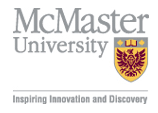About Us
Green Auto Power Train
A multi-institutional collaborative research project supported by Ontario Research Fund-Research Excellence (ORF-RE) program along with other public and private sector partners; Institutions involved include University of Waterloo, McMaster University, University of Windsor and University of Toronto.
 |
 |
 |
 |
In collaboration with NRC, Auto21 and private sector sponsors; Accelerated Systems, Bruel & Kjaer, Chrysler Canada Inc., Dana Corp., Ford Motor Co., Simulent Inc., Sprung-Brett RDI, and Valiant Machine & Tool Inc.
“Green Auto Power Train” will consider the most promising forms of green vehicle technology that are currently in the market, enhance them, and then develop new technologies that will carry through to future designs.
The proposed research within “Green Auto Power Train” will address three themes: gasoline-electric hybrid vehicles (HEV-G), diesel and diesel-electric hybrid vehicles (HEV-D) and the fundamental issues that are common to all hybrid power trains of systems integration. Fuel cell research is a complementary theme that is being accomplished alongside these under separate complementary funding.
The gasoline-electric hybrid engine is considerably more fuel-efficient and has significantly lower emissions, and is currently available in the market but is not rooted in Ontario. It has technical challenges associated with cost and reliability beyond about 150,000 km. The research aims at significantly improving HEV-G diagnostics and test cell technology in order to allow Ontario to re-gain its leadership position in this advanced power train technology.
Diesel and diesel-electric engine technology will be developed for automobiles especially using biofuels such as biodiesel. Diesel engines are more fuel efficient and have 30% less carbon emissions than their gasoline counterparts.
The first two themes are based upon delivery of near- and medium-term solutions centering primarily on gasoline and diesel hybrid power trains. The third theme addresses “systems integration” where the lessons and experience from the first two themes of research will be investigated such as life cycle assessment in terms of efficiency and emissions, selection of electric motors, energy storage and management, noise and vibrations, and thermal management. Also under the third theme studies are carried out concerning the system integration and optimization for battery electric vehicles (BEV) and plug-in electric vehicles.
The project aims to enhance Ontario’s position in hybrid technologies by incremental changes to the design and production of power trains and also to propose new systems. These include advanced testing facilities and procedures, in-vehicle fault prediction systems, new energy storage systems, clean diesel technology, and development and implementation of alternative fuels.
The proposed research offers competitive advantage for the Ontario Auto Sector, ensuring long-term sustainability for the sector through leading edge research, innovation and IP generation. The successful completion of the proposed research will progressively improve our environment, reducing and eventually eliminating auto emissions and our dependence on non-renewable fossil fuels.
